Movie review: Napoleon, historic victory or a film that falls 'short'?
“France… Army… Josephine…”
That sell line up there ^ is reportedly the transcript of Napoleon Bonaparte’s last words. And it’s a pretty neat synopsis for Ridley Scott’s biopic of a scrappy Corsican who rose through the military ranks to become Emporer of France. A feat made significantly more impressive by the fact that the French Revolution, which bloodily and efficiently usurped the existing monarchy in favour of a republic, only occurred 15 years prior to Napoleon’s ascension.
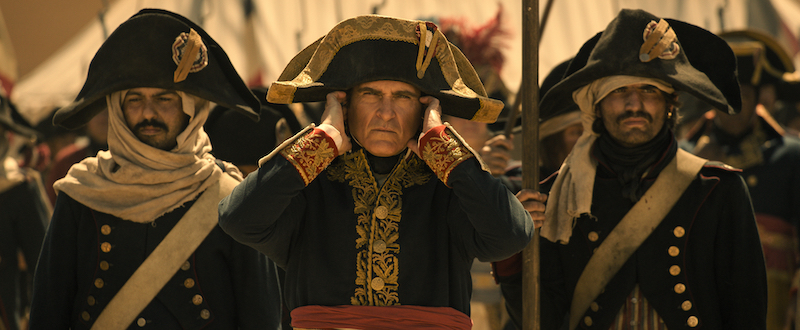
Are you not entertained?
Napoleon marks the second time director Ridley Scott has dressed Joaquin Phoenix in an Emporer’s robes and the second time that casting decision has proven to be an unassailable masterstroke. And despite the fact that both stories chart the journey of a war-weathered, purpose-driven, crusading general, who brazenly challenges the governing establishment; as well as pedaling questionably authentic history lessons, Napoleon (released in cinemas across the UAE on November 23) in no Gualois Gladiator.
A fact that’s worth acknowledging in advance if you’re a Maximus fan expecting a 2.0. Your time will come, but not yet… Not yet.
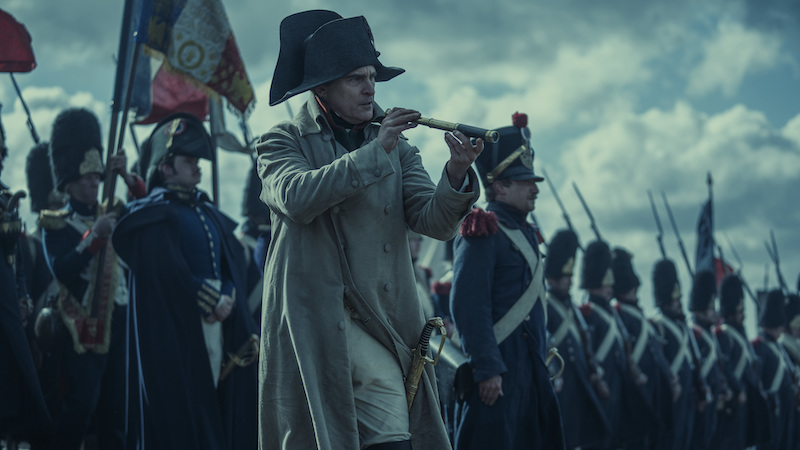
Where Gladiator draws allure from affirming spectacle, from its archetypal vengeance ark, from its theatre of “shadows and dust”, Napoleon relies on a more subtle screen magnetism to compel your attention. Roman mythology, since its inception, has always celebrated the individual – ascribing almost divine devotion (usually to Rome), and infallible virtue to its heroes. Napoleon gives us a warts-and-all protagonist, driven, and principled – yes, but also flawed, destructive and beset with ethical blind spots. It’s real. And Joaquin makes it evermore so.
Thumbs up or thumbs down?
There are three commonly recited facts about Napoleon and all of them are false. A) He kept his armies up his sleevies. B) he once said “not tonight Josephine” (a complete fabrication). And C) Napoleon was short. Neither he nor this movie’s runtime (2hrs 38 minutes) could fairly be considered squat.
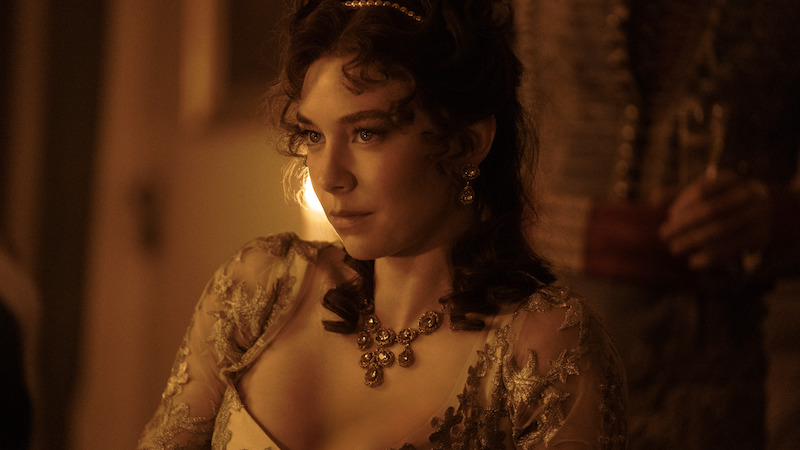
But that longevity is a necessity. Scott’s Napoleon is an autopsy of the man’s passions – France… Army… Josephine… With that final obsession being the one most deeply delved into. The Phoenix iteration of ‘Boney’ paints a charming character – silly and affectionate in love, and a strategic mastermind on the battlefield. This isn’t Napo-tism, his career progression to lord CEO of France corp is entirely merit-based. And his love for Josephine (played brilliantly by Vanessa Kirby), a liberated member of the pre-revolutionary aristocracy, is transcendent of almost everything – though riddled with a toxic codependency, that’s most visible in the dispatches from the frontlines of his (increasingly body count heavy) victories.
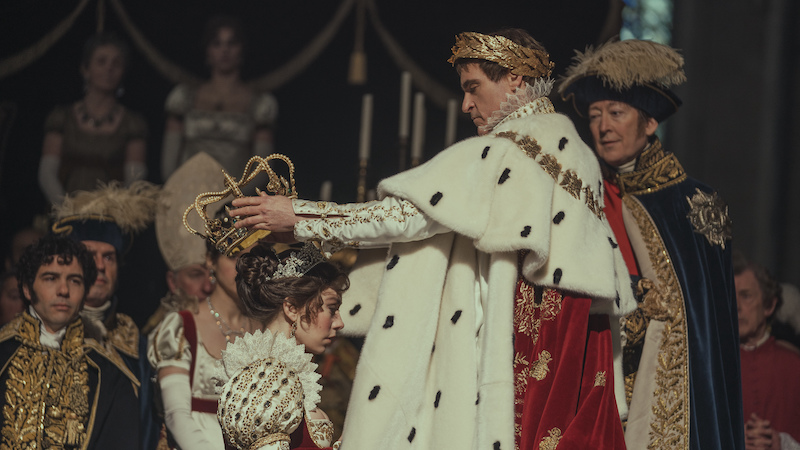
There is a sparkling, deliberately exposed symmetry to the rise and fall of power at the doors of two separate houses in Napoleon. The film begins with the decidedly guillotine-y end to the decadent reign of the Louis-laden French monarchy. In the resultant power vacuum, a successor is sought, a man of the people. A “Caesar” – perhaps a touch ironically.
French philosopher Voltaire once said “history is only the pattern of silken slippers descending the stairs to the thunder of hobnailed boots climbing upward from below.” Napoleon gives us two uniquely rapid cycles of this, by showing us what happens when, at the top of the stairs, a pair of those hobnail boots perform a reverse Cinderella, transform into a pair of royal silken slippers, and makes their own ungainly, fraught descent.
Finally facing his Waterloo
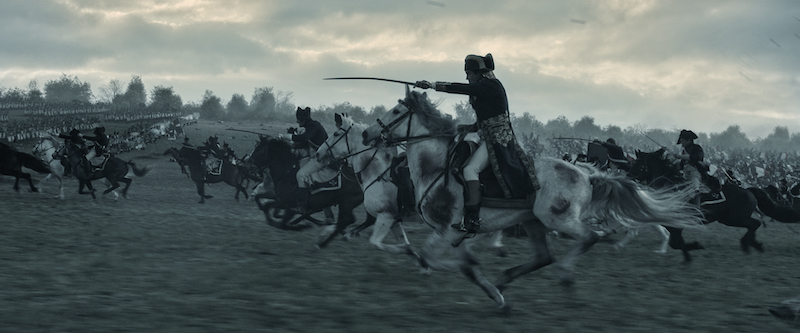
The best parts of Napoleon aren’t the impressive battle sequences – they’re in watching pride, ambition, and love – undo a capable man. That and Rupert Everett as a gloriously bombastic Duke of Wellington.
Verdict: There’s no ‘shortage’ of enjoyable cinema in this epic biopic.
Napoleon is now showing in cinemas across the UAE, book tickets: Now
Images: MovieStillsDB
